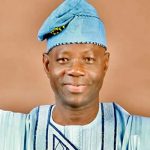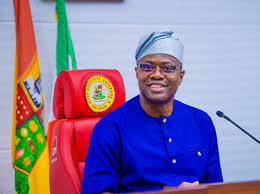2023: Nigeria’s riggers united

By Wole Olaoye
“It is not our diversity which divides us”, said Nelson Mandela, “it is not our ethnicity, or religion or culture that divides us. Since we have achieved our freedom, there can only be one division amongst us: between those who cherish democracy and those who do not.” Wise words, assuming the process of ascending to power is not rigged or tainted.
When the Nigerian Senate amended the electoral bill to subsume the Independent National Electoral Commission (INEC) to the Nigerian Communications Commission (NCC) in the matter of the electronic transmission of results, not a few analysts decoded what they interpreted as the hidden code: the 2023 elections have already been rigged 18 months ahead of showtime!
Being street-wise politicians, perhaps the distinguished senators had been reading too much of Joseph Vissarionovich Stalin. In the matter of rigging the will of the people, there can’t be much difference between capitalists and communists. Vice has no ideology.
A Nigerian rigger can learn a thing or two from his Russian counterpart. Thanks to Stalin, we are reminded that, “The people who cast the votes decide nothing. The people who count the votes decide everything.”
We have had several cases where the winner that emerged after the close of balloting was different from the person declared victorious at the collation centre. The road between the voting point and the eventual declaration of results is laden with many landmines.
According to Idayat Hassan, Director of the Centre for Democracy and Development (CDD), who has keenly studied the subject, “In Nigerian elections, you can win during voting but lose during collation…Sometimes returning officers also get intimidated… we saw such cases in Taraba and Imo in the last elections.”
That was why INEC had started introducing technology to reduce the human interface in the process. But a section of the political elite prefer (no, insist on) the old ‘native-law-and-custom’ system where bribes and raw intimidation swung the pendulum.
Electronic transmission of results was widely adopted by stakeholders during public hearings on the amendment of the Electoral Act by the National Assembly. It had been used, to the great credit of INEC, in the September 2020 Edo State governorship polls.
INEC Chairman, Mahmud Yakubu, had urged the National Assembly to amend the Electoral Act to provide for electronic collation and transmission of election results. But, see what he got!
The original amendments to the Electoral Act provided for electronic transmission of results but just as the Senate was set to pass the bill, a strange Section 50(2), which completely outlawed transmission of votes by electronic means, appeared in the draft legislation as follows: “Voting at an election under this Bill shall be in accordance with the procedures determined by the commission, which may include electronic voting provided that the Commission shall not transmit results of the election by electronic means.”
The catch is in the electronic transmission of results. You can vote electronically; you can use electronic card readers; you can maintain servers for various purposes, but don’t you ever transmit the results electronically. The senators know something the rest of us don’t know!
If a man has a choice to travel to a distant place by automobile but prefers to ride a camel, there must be something he has not disclosed.
Electronic transmission of results has many advantages. It encourages voter confidence as the whole process happens in the presence of the electorate. It eliminates the need for collation centres, as they are presently known. There will no longer be any need to rely on road or water transportation to physically convey results to collation centres.
Results will no longer disappear between counting and collation. Political thugs adept at snatching official documents containing results or holding INEC officials hostage will have to put their energies to other uses. The use of technology will also save time; results of voting will be uploaded in real time.
Jettisoning manual tabulation and transmission will eliminate the stress and inaccuracy associated with the old system. Idayat Hassan attests: “In the 2019 election there were cases of arithmetical error by collating officers”.
In its postmortem analysis of ward-level collation during the 2019 presidential election, CDD noted that the collation of results was a much-exploited weakness in the Nigerian election process.
Using documentary evidence from 8,809 election observers accredited by INEC, the CDD report concluded: “In the 2019 elections, civil society observers all across Nigeria saw a collation process that was chaotic, vulnerable to manipulation and, in some locations, violently disrupted and unnecessarily opaque.”
What rankles is the fact that INEC has always indicated its readiness to transmit election results electronically. If INEC — in exercise of its constitutional powers — says it can, who is the National Assembly to say it can’t?
INEC National Commissioner and Chairman, Information and Voter Education Committee, Festus Okoye, has taken to various media fora to reiterate the Commission’s position. Confirming that INEC has the capacity to transmit election results throughout the chain, he drew attention to INEC’s due diligence before arriving at the decision.
“The Joint Technical Committee constituted by the commission and the Nigerian Communications Commission and made of telecommunication operators met on March 9, 2018, and the consensus was that the requirements for the electronic transfer of results proposed by INEC is practicable…
We have the assurance of the service providers that they have provided similar technological solutions to other agencies and have the capacity to deploy technology to cover a few blind spots.”
Some of the operations/services of the commission are already technology-based. Domestic election observers and the media apply for accreditation to observe and cover elections electronically. Going forward, political parties will submit the names and photographs of their polling agents electronically.
Since last year, INEC has been uploading Form EC8A (polling unit results) to a central viewing portal. The Commission uploaded results from polling units in difficult riverine areas and even areas accessible only through human carriers.2
Electronic transmission of election results is not rocket science. If I may borrow Mandela’s words again, “It always seems impossible until it’s done.”
And, it is actually being done. Okoye says INEC’s pre-test is nationwide: “The commission uploaded results from conflict areas. The commission uploaded results from all geopolitical zones.
Presently, the commission has obtained the GPS coordinates of all the 176,846 polling units in the country and expanded voter access to the polling units.
Currently, the commission is carrying out part of the continuous voter registration exercise online, while the physical registration of voters will be done using INEC Voter Enrolment Device that will capture the fingerprints and facials of registrants.”
Curiously, the National Assembly did not give the floor to INEC on the crucial day the unconstitutional decision to tamper with the Commission’s independence was taken. The assemblymen shaved INEC’s head in its absence!
I am on the same page with those who say that the controversial subjugation of INEC to NCC and NASS is unconstitutional and tailor-made for rigging. In the rigging department of electioneering, no politician or party can be trusted with ferrying the cookie jar. But what do I know?!
The National Assembly’s amendment will collapse on the paraplegic legalism on which it stands.
Wole Olaoye can be reached through wole.olaoye@gmail.com.










